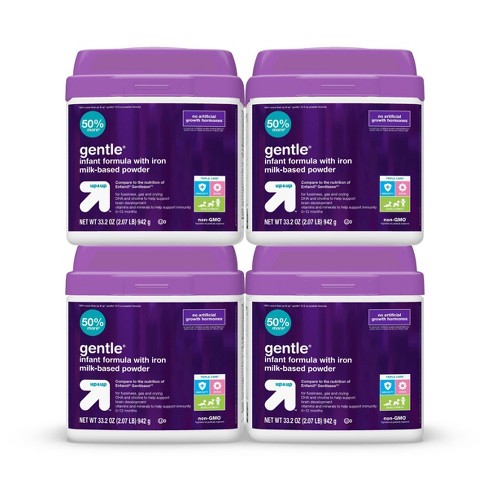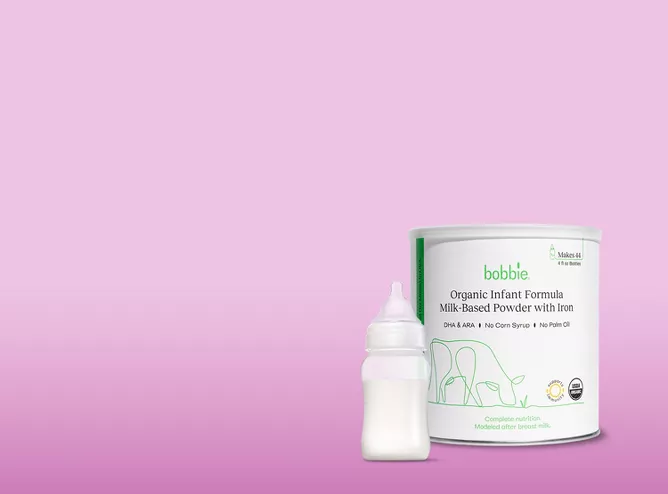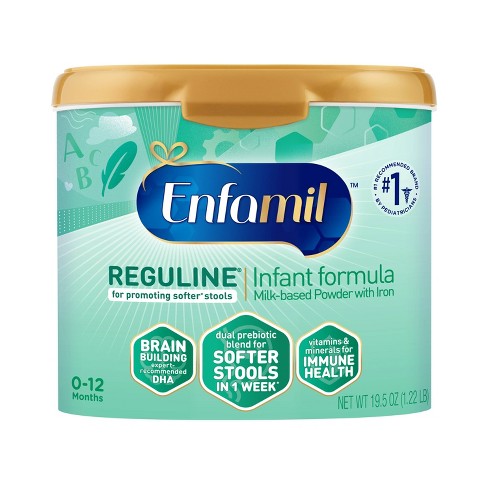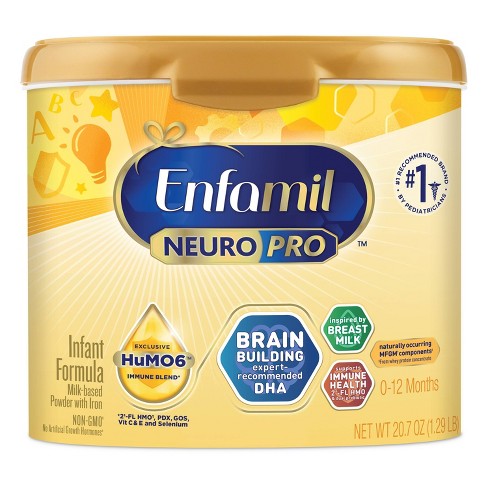Target Baby Formula Return Policy
-
Target Baby Formula Return Policy
Can You Return Unopened Formula To Target?
You can return unopened baby formula to Target. According to Target's return policy, they accept returns on all unopened and unused baby formula within 90 days of purchase for regular customers. This means that if you have purchased baby formula from Target but have not opened or used it, you can return it to Target within 90 days of purchase.
Target RedCard cardholders also receive 30 additional days to return items, making it 120 total days. So, if you made your baby food purchase with your RedCard, you have a total of 120 days to return unopened and unused baby formula.
It is important to note that the returned baby formula must be unopened and unused, and you will need to provide proof of purchase, such as a receipt or order confirmation email, to return the product.
Target allows customers to return unopened, unused and unopened baby formulas within 90 days. RedCard members have 120 days. The product must be in the original packaging and include proof of purchase.
If You Return An Item From A Bogo-Free Promotion, You'Ll Get A Prorated Discount
If you purchase something at Target under a Buy One Get One promotion, the discount will be based on your lowest-priced item.
To illustrate this concept, let's say Target has a BOGO-free promotion on Bluetooth speakers. The first speaker costs $60, and the second costs $40. Both speakers would cost $100 at full price. But since you're getting the $40 speaker for free and only paying for the $60 speaker, you're essentially getting a 40% discount.
If you return either speaker you purchased under the BOGO-free promo, your refund will be equal to the original purchase price minus its 40% prorated discount.
If you return a $60 speaker, then your refund is $36. If you return the $40 speaker, your refund will be $24. The prorated refund policy applies to BOGO deals that offer 50% off.
You're doing too much math. Don't worry. Your Target receipt will show you the return value for each item in your BOGO purchase.

Is Formula Thrown Away If Returned?
Standard guidelines state that returned formulas must be destroyed, unless the legal department of a local organization has approved their donation. It is crucial to ensure that the formula has maintained its safety for consumption while it was outide of the clinic's control. Therefore, it cannot be assumed that the returned formula is safe for consumption. To avoid potential health hazards, it is important to dispose of returned formula according to the guidelines. The legal department must approve the donation, and it's important to adhere to the protocol in order to make sure the formula can be consumed.
Mail To Walmart
Once the infant milk powder arrives at Walmart, returns and substitutions will be made. As a result, reimbursements may take about ten days to appear in your preferred payment method.
Refunding baby formula to Target
Target is a popular choice for parents who want to buy groceries as well as other baby products, such a diapers.
Return unopened formula for babies within 90 days. RedCard members get 30 extra days in addition to the normal return policy.
If you are returning an item at a Target, you will need your receipt and ID. You can return an item by post if you bought it online. Just log in to the Target website and locate your purchase.
Select "Return by Mail" and follow the steps to see if your baby formula is eligible for a refund or store credit.
Target makes it easy to return things like formula even if you lose your physical receipt. They can also find it using your original payment method if you paid by debit or credit card.
You can also return baby formula that you purchased with WIC or EBT for a refund to your benefits account or the ability to exchange for an approved item.
Also check out Target's policy for returning diapers
What does Target do with returned food?
When it comes to food returns at Target, including baby food and other baby items, everything gets thrown away.
The employee cannot guarantee that the product hasn't been altered. As a result, all food items are considered to be defective automatically and get tossed. For all other non-food items, Target has a 90-day return policy.
Most of the food I receive at my job is donated. the only things not donated is something completely moldy, already opened and possibly contaminated, or returns that are not shelf stable. If it's salvageable, it is because they are responsible about their food waste.
Can I Give My Baby Unopened Expired Formula?
You should not give expired or unopened formula to your infant. Food and Drug Administration requires that infant formula have a "use-by" date. This date indicates the last day the formula is guaranteed to be at its best quality and nutritional value. Using expired formula can put your baby at risk of not getting the necessary nutrients they need for healthy growth and development. Always check the expiration dates before buying and using any formula. It's better to throw away the old formula and buy a fresh one if it has already expired.
Target Drive-Up is available at select stores. You can even return items from your car (and order Starbucks while you're there).
Target rolled out Drive Up Returns at select stores in April 2023, meaning you can make Target returns without ever leaving your car.
The whole thing works similarly to Target Drive Up for pickup orders. The app will start the return, you park at a Drive Up Returns area, present your barcode to a Target staff member, and receive your refund on the spot.
Target allows you to make Drive Up Returns and order Target Starbucks all at once. As you get your money back, grab a little extra to help you keep going.
Target's plan is to have Drive Up Returns available at all Target locations by the end of the summer, so fingers crossed for that rollout.
Target Up And up Formula is out of stock?
The shelves of grocery stores were emptying across the nation. The parents, especially those living in rural and low-income areas, looked for ways to feed their babies. The Food and Drug Administration (FDA) of the United States released new guidance that will make importing formula from other nations easier and assist domestic manufacturers in entering the market.
Please enable JavaScript
Abbott Nutrition recalls specific lots of Similac powdered formulas and Alimentum formulas along with one lot each of Similac PM60/40 in February 2022. Abbott's Sturgis plant in Michigan produced the entire recalled product line.
The Food and Drug Administration is exploring links among infants who became ill with Cronobacter sakazakii and who consumed powdered formula produced at the same Abbott manufacturing plant.
Cronobacter sakazakii can cause dry food to become contaminated. Powdered formula for babies can be a serious health risk, especially to newborns. Infant Cronobacter infection is rare, but can be deadly.
Infant formula manufactured in the U.S. must undergo testing for Cronobacter and Salmonella. Cronobacter wasn't found in Abbott infant formulas. However, it was discovered in an area that was "non product contact" in the Abbott facility.
The United States still faces a nationwide shortage of infant formula despite months of empty shelves. According to market research company Information Resources, Inc., over 20% of baby formulas were not in stock during the six-week period before July 24, It could be because the Target Up and Up formula is not in stock.
What is "Nutritional risk"?
WIC recognizes two major nutritional risks:
Nutritional risk is determined by a health professional such as a physician, nutritionist, or nurse, and is based on federal guidelines. The health screening for program participants is provided at no cost.
Beginning April 1, 1999, state agencies use WIC nutrition risk criteria from a list established for use in the WIC program. WIC nutrition risk criteria were developed by FNS in conjunction with state and local WIC agency experts. WIC state agencies are not required to use all of the nutritional risk criteria on the new list. FNS will update the list of criteria, as necessary, when new scientific evidence shows, after review by FNS and other health and nutrition experts, that the condition can be improved by providing WIC program benefits and services.
Must-Read Posts
- The Ultimate Guide to the Best Fabric Glues
- Where Is The Largest Target & How Big Is It?
- Does Kohl's Cash Expire?
- Numbuzin Reviews
- What Heavy Cream Does Starbucks Use?
- Target Baby Formula Return Policy
- The Ultimate Guide to Finding the Best Canned Chili
- The Ultimate Guide to Choosing the Best Pool for Your Backyard
- 24/7 Hour Emergency Dentist: Immediate Dental Care When You Need It



